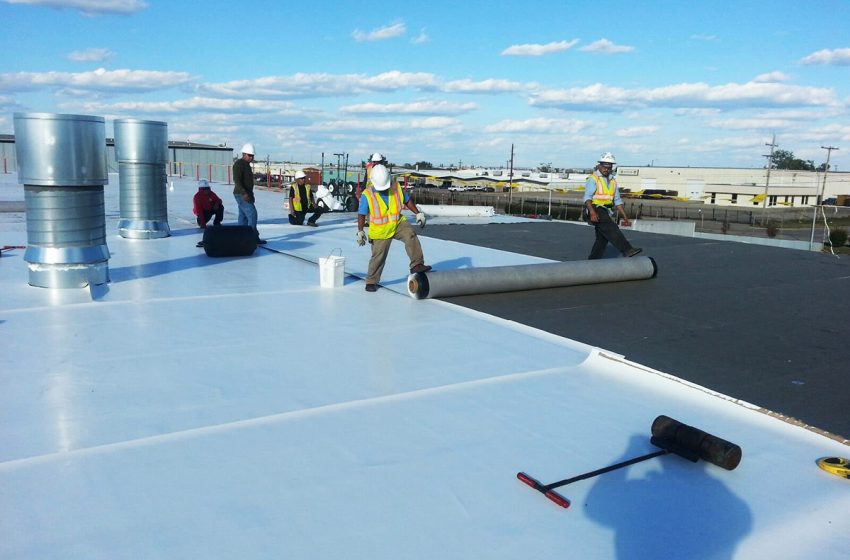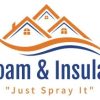Why Membrane Roofing is a Long-Term Solution for Your Roof

When it comes to roofing solutions, durability and efficiency are key factors for homeowners and business owners alike. Among the various roofing options available, membrane roofing stands out as a superior choice, particularly for flat or low-sloped roofs. This article delves into the many benefits of membrane roofing and explains why it is a long-term solution for your roofing needs.
What is Membrane Roofing?
Membrane roofing consists of a thin, continuous layer of material that serves as a barrier against the elements. Typically made from synthetic materials like TPO (thermoplastic polyolefin) or EPDM (ethylene propylene diene monomer), membrane roofing provides excellent protection against water, UV rays, and temperature fluctuations.
Advantages of Membrane Roofing
-
Durability: Membrane roofing is designed to withstand harsh weather conditions, including heavy rain, snow, and extreme temperatures. This resilience makes it an ideal long-term solution for many building types.
-
Energy Efficiency: Many membrane roofing systems feature reflective surfaces that can help reduce energy costs. By reflecting sunlight, these roofs can keep buildings cooler in the summer, reducing the need for air conditioning.
-
Low Maintenance: Membrane roofs require minimal maintenance compared to traditional roofing materials. Regular inspections and minor repairs can keep the roof in excellent condition for many years.
-
Seamless Installation: One of the main advantages of membrane roofing is its seamless application. The material is often rolled out in large sheets, which minimizes the chances of leaks compared to traditional shingles or tiles.
Types of Membrane Roofing
There are several types of membrane roofing materials available, each with its unique features:
TPO Roofing
TPO is a single-ply roofing membrane that is gaining popularity for its energy efficiency and cost-effectiveness. It is made from a blend of polypropylene and ethylene-propylene rubber, providing a strong, durable surface.
EPDM Roofing
EPDM is another widely used membrane material known for its longevity and flexibility. It can withstand temperature extremes, making it suitable for various climates. EPDM roofs are also resistant to UV radiation and are less likely to crack over time.
PVC Roofing
PVC (polyvinyl chloride) roofing is known for its high reflectivity and durability. It is particularly effective in protecting against chemical damage, making it a popular choice for industrial applications.
Long-Term Cost Savings
While the initial installation cost of membrane roofing may be higher than traditional materials, its long-term benefits often outweigh the upfront investment. Here’s why:
Reduced Energy Bills
The reflective properties of many membrane roofs can lead to significant energy savings over time. By keeping buildings cooler in the summer, these roofs can reduce the reliance on air conditioning, resulting in lower energy bills.
Extended Lifespan
Membrane roofing can last 20 to 30 years or more with proper maintenance. This longevity means fewer roof replacements and repairs over time, translating to lower long-term costs.
Minimal Repairs
Because of their durability and seamless installation, membrane roofs often require fewer repairs than traditional roofing materials. This low maintenance translates into further savings for property owners.
Environmental Benefits
Membrane roofing also offers several environmental benefits that make it an attractive option for eco-conscious homeowners and businesses:
Reflectivity
The reflective surfaces of membrane roofing materials help reduce the urban heat island effect, which can contribute to climate change. By keeping buildings cooler, these roofs can reduce overall energy consumption.
Recyclability
Many membrane roofing materials are recyclable at the end of their life cycle, making them a more sustainable option compared to traditional roofing materials that may end up in landfills.
Reduced Waste
The seamless installation of membrane roofing minimizes waste during the installation process. This efficiency is beneficial for both the environment and the installation budget.
Installation Considerations
When considering membrane roofing for your building, it is crucial to work with experienced professionals who can ensure proper installation. Here are some factors to consider:
Roof Structure
Membrane roofing is best suited for flat or low-sloped roofs. Assessing the current roof structure and ensuring it can support the membrane system is vital for successful installation.
Local Climate
The local climate can influence the choice of membrane material. For example, TPO may be preferred in warmer regions, while EPDM might be a better fit for areas with extreme temperature variations.
Conclusion
In summary, membrane roofing is an excellent long-term solution for anyone looking to invest in a durable, energy-efficient roofing system. Its benefits—ranging from low maintenance requirements to significant energy savings—make it a smart choice for both residential and commercial buildings. If you’re in Medford, OR, or the surrounding areas such as Ashland, Central Point, Eagle Point, Grants Pass, and Roseburg, consider reaching out to All Foam & Insulation, LLC at (541) 402-2500 for expert guidance and installation.
FAQs
How long does membrane roofing last?
With proper maintenance, membrane roofing can last anywhere from 20 to 30 years or more.
Is membrane roofing energy-efficient?
Yes, many membrane roofing systems feature reflective surfaces that can help reduce energy consumption by keeping buildings cooler.
Can membrane roofing be installed over existing roofs?
In some cases, membrane roofing can be installed over existing roofs, but this depends on the current roof structure and materials.
What maintenance is required for membrane roofing?
Regular inspections and minor repairs are recommended to ensure the roof remains in excellent condition.
How do I know if membrane roofing is right for my building?
Consulting with roofing professionals can help determine the best roofing solution based on your specific needs and local climate conditions. For expert advice, contact All Foam & Insulation, LLC at (541) 402-2500.

